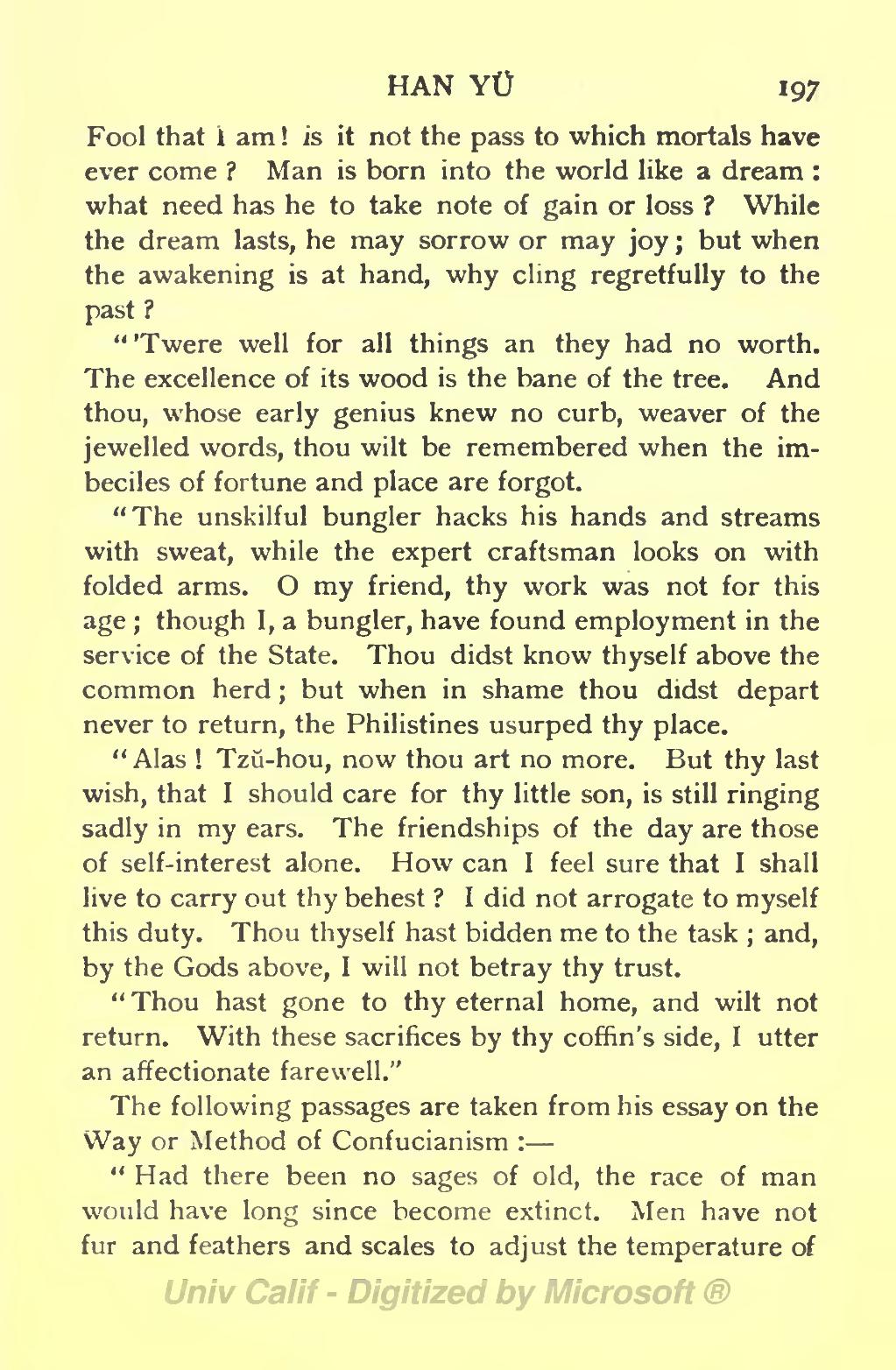Fool that i am! is it not the pass to which mortals have ever come ? Man is born into the world like a dream : what need has he to take note of gain or loss ? While the dream lasts, he may sorrow or may joy ; but when the awakening is at hand, why cling regretfully to the past ?
"Twere well for all things an they had no worth. The excellence of its wood is the bane of the tree. And thou, whose early genius knew no curb, weaver of the jewelled words, thou wilt be remembered when the im- beciles of fortune and place are forgot.
"The unskilful bungler hacks his hands and streams with sweat, while the expert craftsman looks on with folded arms. O my friend, thy work was not for this age ; though I, a bungler, have found employment in the service of the State. Thou didst know thyself above the common herd ; but when in shame thou didst depart never to return, the Philistines usurped thy place.
"Alas ! Tzu-hou, now thou art no more. But thy last wish, that I should care for thy little son, is still ringing sadly in my ears. The friendships of the day are those of self-interest alone. How can I feel sure that I shall live to carry out thy behest ? I did not arrogate to myself this duty. Thou thyself hast bidden me to the task ; and, by the Gods above, I will not betray thy trust.
"Thou hast gone to thy eternal home, and wilt not return. With these sacrifices by thy coffin's side, I utter an affectionate farewell."
The following passages are taken from his essay on the Way or Method of Confucianism :
" Had there been no sages of old, the race of man would have long since become extinct. Men have not fur and feathers and scales to adjust the temperature of
�� �
